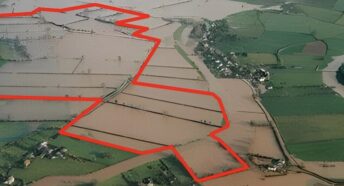Speak out NOW for the countryside, rural affordable homes and local decision making!
The Campaign to Protect Rural England (CPRE) is urging people to write to their local MP today about a draft new Government website on planning guidance.
If the website is not improved it will frustrate the building of thousands of affordable homes, and lead to local councils being repeatedly overruled about where, and what type of, new housing is built in their area.
Members of the public and MPs have until this Wednesday (9 October) to make their voices heard about Government changes to planning guidance.
You can use this website to email your MP
The consultation comes as a growing tide of evidence shows that the Government’s planning reforms are not working as intended and need urgent clarification. In particular:
- Ministers and planning inspectors continue to override the wishes of local communities and permit large housing developments in sensitive areas of countryside. In the past two months alone, eight schemes totalling over 2,000 houses have been permitted in open countryside across Cheshire, Devon, Hampshire, Oxfordshire, Surrey and Teesside.
- While more housing is being given planning permission, new housing is becoming less affordable. A recent study by the Bureau of Investigative Journalism has found that more than 2,300 affordable homes have been axed from new developments across England through renegotiation of previous planning agreements, with at least 70 local councils (listed in the study) having to accept lower levels of affordable housing in new developments than their policies called for. The Government has an opportunity to address these issues through the new planning practice guidance. A draft website containing new guidance is being consulted on until 9 October.
This draft guidance will make matters worse
CPRE believes that unless changed the draft guidance will make matters worse by:
- Removing controls on new development around villages, which have helped deliver up to 1,500 new affordable homes per year in a number of villages across England in recent years by keeping land values low;
- Preventing refusal, in most cases, of large housing schemes before a local authority has been able to decide what type of new housing is needed in an area and where it is best located (so-called ‘prematurity’ cases); and
- Requiring new tests of ‘affordability’ and ‘viability assessment’ for local planning which will, rather than helping to meet community needs, merely hand greater power to developers to build where they choose.
What we are calling for
- Continued encouragement for affordable housing through policies protecting the open countryside, while providing ‘exception sites’ on the edge of villages where affordable housing is needed to ensure low land values;
- Local authorities to be able to refuse large housing schemes that are contrary to an advanced local plan; and
- The ‘affordability’ test to be scrapped and ‘viability assessment’ requirements to be simplified.
Paul Miner, Senior Planning Campaigner at CPRE, said:
‘Ministers have promised to return more power to local communities, recognise the intrinsic value of our countryside and provide more affordable housing. But there is growing evidence to suggest that the reverse is happening. Ministers need to be much clearer about how they expect planning to achieve what they have promised.’
Paul Miner concluded:
‘We need greater support for affordable housing in villages, and local authorities to be given more time to plan the right housing in the right places. Loading new and unnecessary requirements on them to assess the economic viability of their plans is not the way forward.’
Please act now
Write to your MP now. CPRE has produced a petition on the draft guidance and our Charter to Save the Countryside, which people can use in letters to local MPs. These can be downloaded from http://www.cpre.org.uk/how-you-can-help/take-action/housing-and-planning/item/3436-stop-plans-to-release-more-countryside-for-new-development
- A number of important documents have yet to emerge. For example, a rigorous transport plan and a finalised air-quality assessment. The latter is critical given that allocations at Teynham will feed extra traffic into AQMAs.
- There seems to be no coherent plan for infrastructure delivery – a key component of the plan given the allocations being proposed near the already crowded Junction 7.
- There seems to have been little or no cooperation with neighbouring boroughs or even parish councils within Swale itself.
The removal of a second consultation might have been understandable if this final version of the plan were similar to that being talked about at the beginning of the consultation process. It is, however, radically different in the following ways:
- There has been a major shift in the balance of housing allocations, away from the west of the borough over to the east, especially around the historic town of Faversham. This is a move that raises many concerns.
- A new large allocation, with accompanying A2 bypass, has appeared around Teynham and Lynsted, to which we are objecting.
- Housing allocations in the AONB around Neames Forstal that were judged “unsuitable” by the council’s own officers have now appeared as part of the housing numbers.
- Most of the housing allocations being proposed are on greenfield sites, many of them on Grade 1 agricultural land – a point to which we are strongly objecting.
Concerns about the rush to submit the plan
The haste with which the plan is being prepared is especially worrying given the concentration of housing in Faversham. If the town is to take a large amount of new housing, it is imperative that the policies concerning the area are carefully worked out to preserve, as far as possible, the unique nature of the town. The rush to submit the plan is likely to prove detrimental.
As Swale does not have a five-year land housing supply, it is open to speculative development proposals, many of which would run counter to the ideas contained in the current plan. Some are already appearing. This is a common situation, and one that, doubtless, is a reason behind Swale’s haste.
Our overriding fear, however, is that this emphasis on haste is ultimately going to prove counterproductive. This is because it is our view that the plan, in its current form, is unlikely to pass independent examination. We are urging Swale to listen to and act upon the comments being made about the plan and to return the plan to the council with appropriate modifications before submitting it to the Secretary of State.
Essentially, this means treating the current consultation not as the final one but as the ‘lost’ second consultation.
The consultation ends on Friday 30 April and we strongly urge residents to make their opinions known if they have not already done so.
Further information









